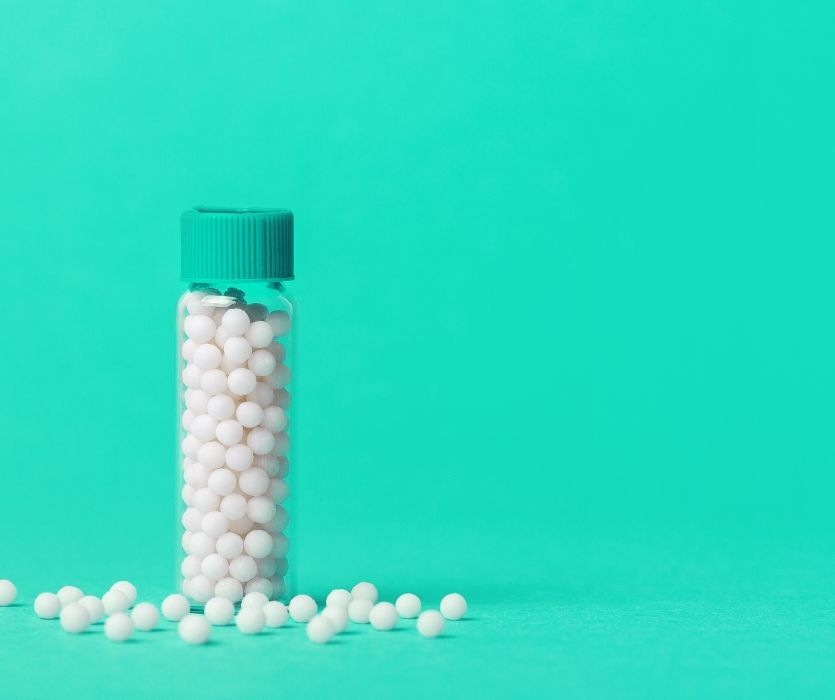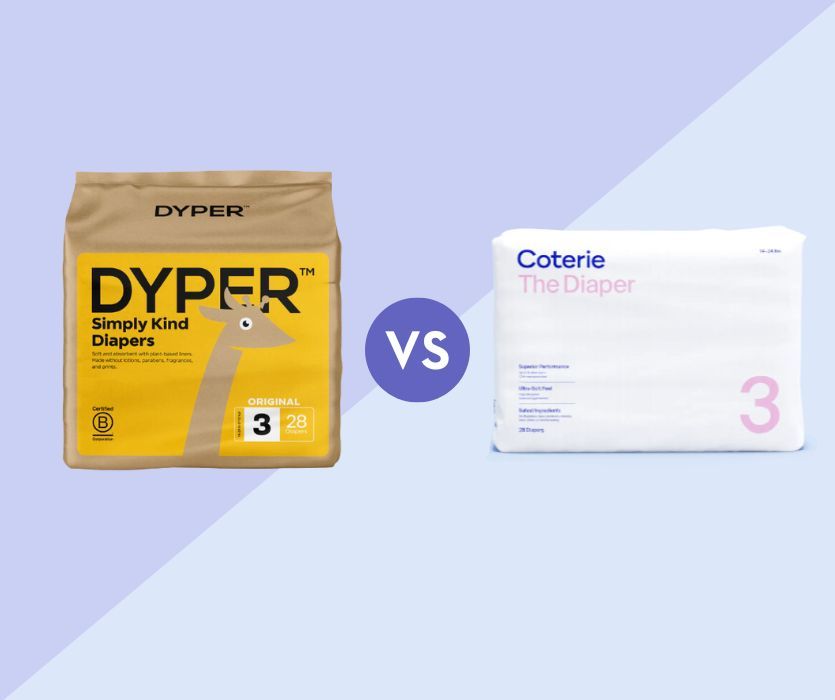After you determine which products are meant for infants you’ll notice that some are flagged on the package as being “homeopathic.” These homeopathic medicines for babies, such as Zarabee’s baby cough syrup and Baby Orajel Teething Gel, are all kind of mixed up together with other meds on the shelves. I decided to do some research about what exactly homeopathic medications are and how they differ from conventional meds.
What is homeopathic medicine for babies?
Here goes.
Homeopathy is a philosophy and practice of natural medicine that is centered around the idea that the body has the ability to heal itself. Homeopathy is grounded in the idea that “like heals like,” meaning that if a natural material causes a symptom in a person, then giving someone who is ill with those symptoms a very tiny amount of that material will cure them because it will trigger the immune or pain relief system in the body. Since the late 1700s people have been cataloging the symptoms natural material cause in a healthy person so homeopathic practitioners can know how to treat illnesses with similar symptoms in illin’ people.
Still with me?
How is homeopathic medicine made?
To make a homeopathic medicine, practitioners take a very tiny amount of a plant, animal, or mineral material (this is the active ingredient that causes the “like” response) and then dilute it with a whole lotta water. The combo of natural material and water is then mixed together using a kind of shaking/whacking method and are then administered as tablets, liquids or sprays.
Side note here that there’s this one scientist, Benveniste, who claimed in the 1980s that the reason these heavily diluted homeopathic solutions worked is because water molecules somehow held a “memory” of the antibodies that they had previously been in contact with during the dilution process. This has been pretty much totally disproven, but nice try, French guy.
So, do Homeopathic Medicines actually work?
A few years ago, the National Health and Medical Research Council (NHMRC) in Australia reviewed hundreds of studies on this topic and concluded that many of the studies that claim homeopathic medications work were actually very poorly designed and/or didn’t have enough participants to be considered significant. It seems the quality of the studies is so poor that no solid conclusions can be drawn and in some studies, the homeopathic meds were found to be no more effective than a placebo.
Also, I have to give you the heads-up that, while the Food and Drugs Administration (FDA) does oversee the manufacturing practices of homeopathic drugs, they do not evaluate them for safety or efficacy. In fact, this time last year the Federal Trade Commission (which monitors advertising claims) got cranky at the FDA, saying that homeopathic medications were violating advertising guidelines because the FDA does not require scientific or clinical data to back homeopathic products’ claims on the packaging—meaning there’s no proof that those products do what they say they are intended to do. Woof.
It can’t hurt to try though, right?
There’s also an argument that there’s no harm, no foul in trying homeopathic medications since they are all “natural”, so why not just give them a try? The problem with that is those active ingredients may do something, just maybe not what the box intends, but without rigorous testing, we often discover the unintended side effects after the fact.
Take, for example, Hyland’s Teething Tablets, and their recent recall. After reports of severe illnesses, and even deaths in some cases, were reported, it was discovered that inconsistent amounts of belladonna were found in individual tablets. While Hyland’s believes itty bitty bits of belladonna may help soothe aching gums, the FDA’s stance is firmly opposite, stating: “There is no known safe dose or toxic dose of belladonna in children because of the many factors that affect it.” While the vast majority of users didn’t have reported issues, knowing some children reacted so poorly is something to consider before using a product on your own kid.

To sum this up, there seems to be a big gap in the research about whether they actually work, and the FDA is not monitoring the safety of these meds, so none of that is very reassuring. That said, plenty of stores carry them and I know people who swear by them! I just want you to know what you’re spending your hard-earned cabbage on. ::insert ‘The More You Know rainbow’ here::
Our next recos: Medicine List For Sick Babies




Leave a Comment